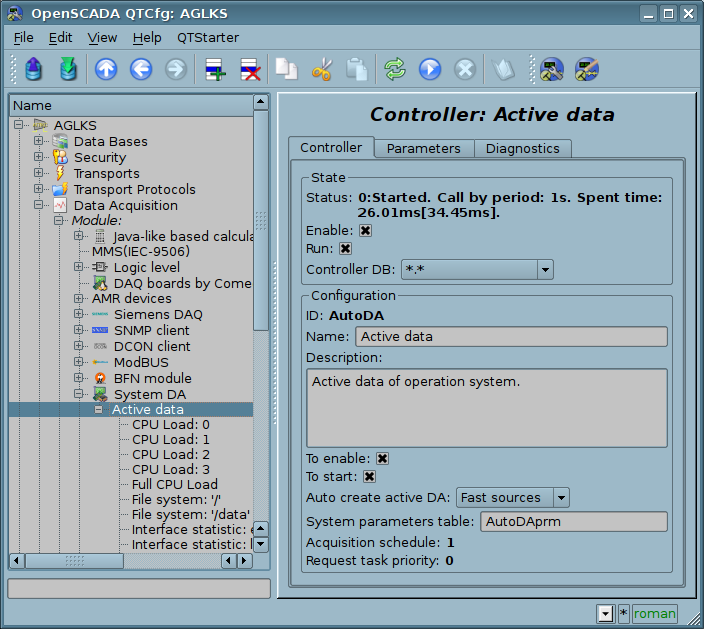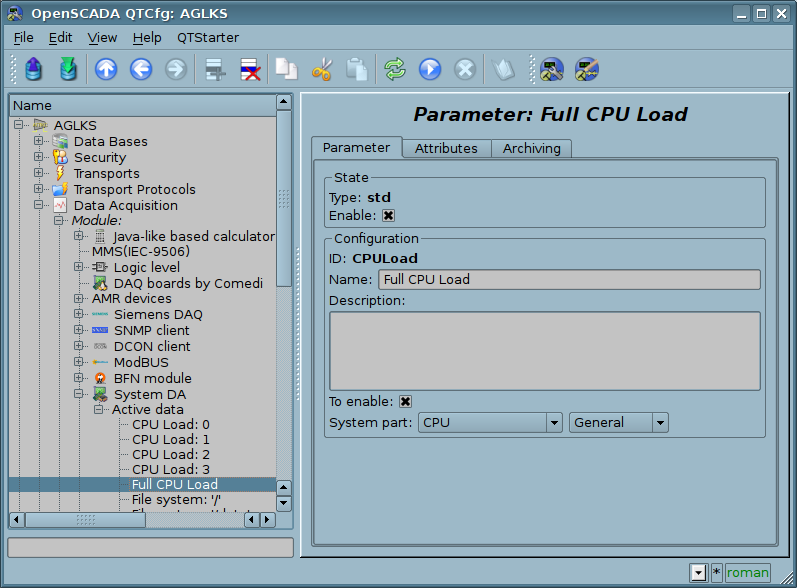The module of subsystem “Data acquisition” <System>
![]() Ðóññêàÿ âåðñèÿ
Ðóññêàÿ âåðñèÿ
![]() Óêðà¿íñüêà âåðñ³ÿ
Óêðà¿íñüêà âåðñ³ÿ
| Module: | System |
| Name: | Data acquisition of OS |
| Type: | DAQ |
| Source: | daq_System.so |
| Version: | 1.7.0 |
| Author: | Roman Savochenko |
| Translated: | Maxim Lysenko |
| Description: | Provides data acquisition from the OS. Supported data sources of OS Linux: HDDTemp, LMSensors, Uptime, Memory, CPU etc. |
| License: | GPL |
Introduction
The module is a sort of gateway between the system OpenSCADA and OS (operating system). The module receives data from various data sources of the OS and allows to manage components of the OS (in the future).
The module provides the ability to automatically search for the supported and active data sources with the establishment of parameters for access to them as well as the implementation of the function of the horizontal reservation, namely, working in conjunction with the remote station of the same level.
1. The controller of data
To add a data source of operating system there is created and configured the controller in the system OpenSCADA. Example of the configuration tab of the controller of the given type depicted in Fig. 1.

Fig.1. Tab of configuration of the controller.
From this tab you can set:
- The state of the controller, as follows: Status, "Enabled","Running" and the name of the database containing the configuration.
- Id, name and description of the controller.
- The state in which the parameter is to be transfered at boot time: "Enabled", "Running".
- Horizontal reservation mode and preference of the performance of the controller.
- Feature "Automatic search of active data sources and the creation of parameters for them".
- Name of table to store the configuration of the controller parameters.
- The period and the priority tasks of the interrogation of data sources.
2. Parameters
Module System provides only one type of parameters - "All parameters". Additional configuration fields of the parameters of the module (Fig. 2) are:
- part of the system;
- optional (depending on the data source).

Fig.2. Tab of configuration of the parameter.
The table below there is a list of supported data sources of the operating system, the value of the additional configuration field and attributes of the parameters.
Links